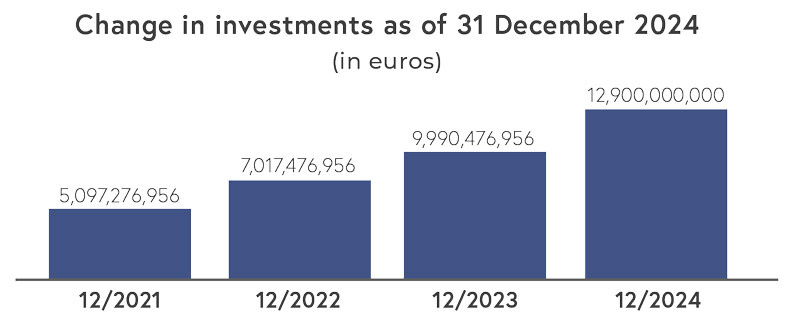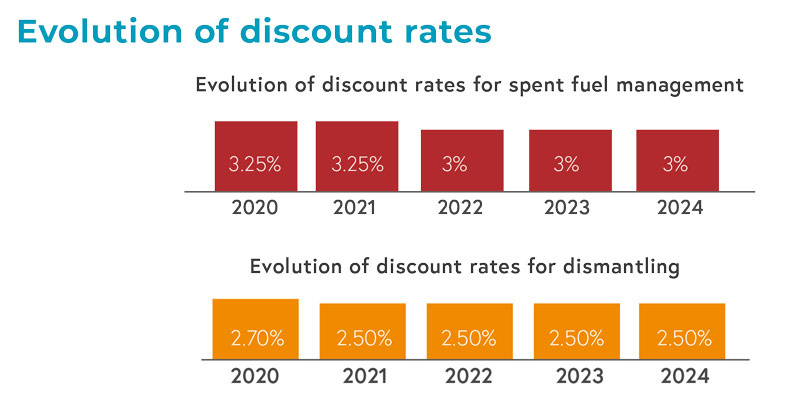The nuclear provisions
Provisions for the dismantling of the Doel and Tihange nuclear power plants
The dismantling provisions are created by SYNATOM to cover the entire updated amount of dismantling costs for each nuclear power plant, at the time of its final shutdown as defined by law. The dismantling will be performed by the operator on behalf of SYNATOM, which will charge the costs to the provisions created.
To perform the estimates, SYNATOM uses the expertise of the ENGIE Group (in particular TRACTEBEL and ELECTRABEL) and the international expertise of the German company Siempelkamp NIS Ingenieurgesellschaft mbH.
The various phases of the work are an important factor that need to be taken into consideration when calculating the dismantling costs.
Dismantling a unit consists of three phases:
1. The Post Operational Phase (MAD) which includes draining the circuits and removing the fuel assemblies from the deactivation pool. This step is covered by the operating license. It extends over a period of approximately 5 years.
2. Dismantling the systems.
3. Releasing the site as an industrial green field.
The last two stages require a dismantling license granted by the Federal Agency for Nuclear Control.
The estimated duration for dismantling a unit is around 10 years.
Provisions for spent fuel management
Responsibility for the spent fuel management provisions is transferred to HEDERA as part of the closing of the Phoenix agreements.
To create these provisions, SYNATOM factors in numerous parameters such as how long the reactors were in operation, timing differences between the dismantling and management of irradiated materials, discount rates and the recommendations of the Nuclear Provisions Commission.
SYNATOM must ensure that it maintains sufficient liquidity at all times to cover all expenses related to the dismantling and management of spent fuel that may arise over the next 3 years.
Different discount rates
Given the very different timings of the dismantling phase and spent fuel management, the Nuclear Provisions Commission has decided to change the discount rate specific to each type of provision.

